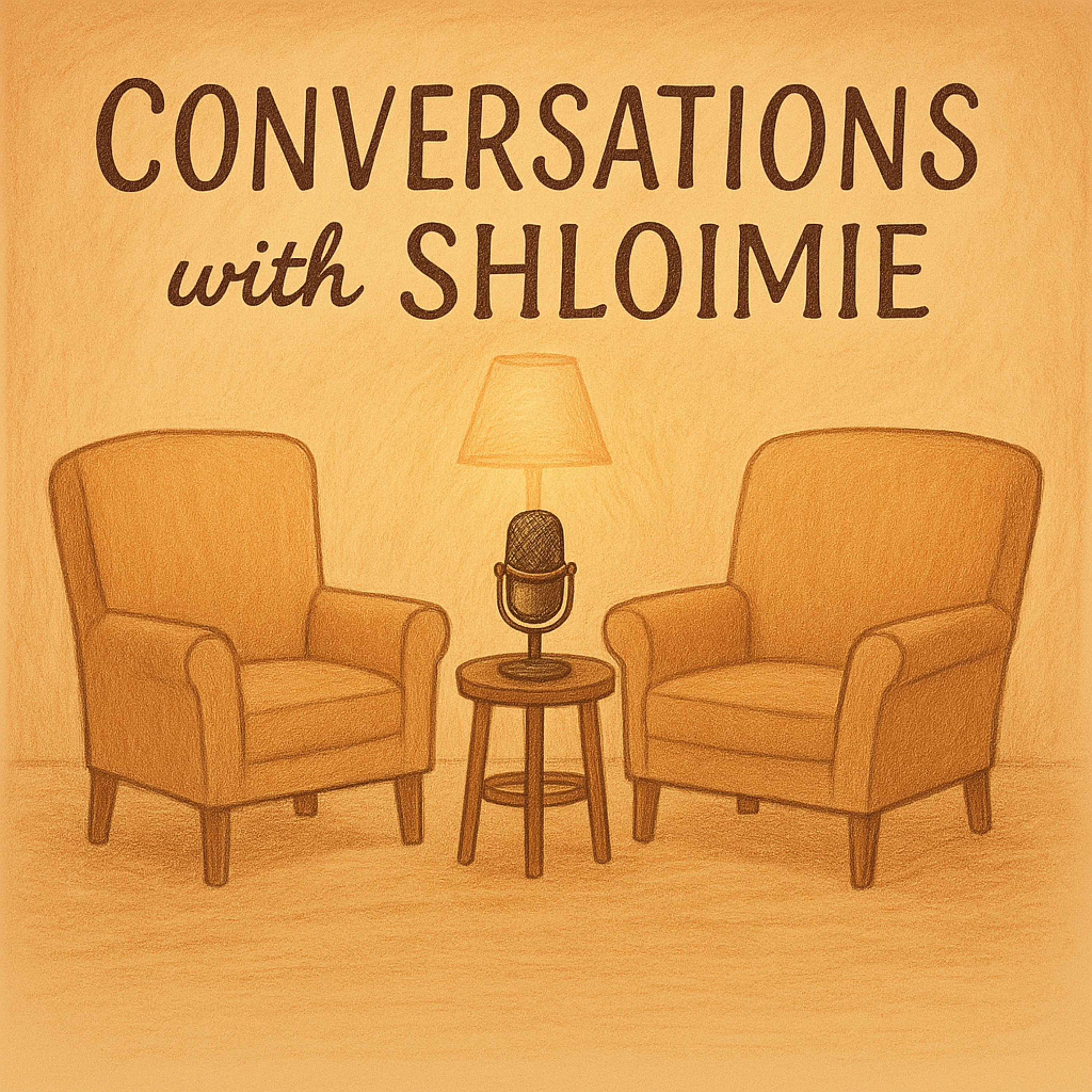Conversations with Shloimie

Conversations with Shloimie
Podcast Description
Conversations with Shloimie is a raw and real space where mental health, personal growth, and spirituality intersect. Each episode dives deep into the human experience: From stories of struggle and healing to meaningful conversations with guests who aren’t afraid to go there. Whether you're a therapist, a seeker, or part of the Jewish community looking for honest dialogue, this podcast invites you to listen in, reflect, and grow. No fluff. Just heart, depth, and the courage to be real.
Podcast Insights
Content Themes
The podcast explores themes of mental health, spirituality, and personal development with episodes that include discussions on the intersection of astrology and psychology through interviews with Mendel Zirkind and reflections on the journey of becoming a therapist with Yossi Feigenson, along with in-depth conversations about technology's impact on human relationships featuring the Rappoport brothers.

Conversations with Shloimie is a raw and real space where mental health, personal growth, and spirituality intersect. Each episode dives deep into the human experience: From stories of struggle and healing to meaningful conversations with guests who aren’t afraid to go there. Whether you’re a therapist, a seeker, or part of the Jewish community looking for honest dialogue, this podcast invites you to listen in, reflect, and grow. No fluff. Just heart, depth, and the courage to be real.
Summary
In this conversation, Dr. Akiva Perlman discusses the complexities of sex addiction, emphasizing that it often stems from deeper issues of self-worth and connection rather than mere sexual behavior. He explores the impact of shame, particularly in religious communities, and the importance of understanding sexuality as a relational issue. The dialogue also touches on the journey of self-discovery, the significance of love and acceptance, and the need for a more nuanced approach to sexuality and addiction.
Takeaways
- Sex addiction is often more about emotional connection than sexual behavior.
- Shame and guilt are significant factors in sexual struggles, especially in religious contexts.
- Understanding one's self-worth is crucial in addressing sexual addiction.
- Sexuality should be viewed through a relational lens, not just a behavioral one.
- The journey of self-discovery is essential for personal growth and healing.
- Acknowledging and facing shame can lead to healthier relationships with oneself and others.
- Parents should foster an environment of understanding and acceptance regarding sexual struggles.
- Life is a continuous journey of growth, not a destination to reach.
- Love and compassion towards oneself are vital in overcoming struggles.
- The conversation around sexuality needs to evolve beyond black-and-white narratives.
Sound bites
”Sex addiction has very little to do with sex.”
”Sexuality is attachment, it is relational.”
”Life is a journey, not a destination.”
Keywords
sex addiction, healthy sexuality, shame, self-worth, vulnerability, intimacy, relational issues, mental health, therapy, community

Disclaimer
This podcast’s information is provided for general reference and was obtained from publicly accessible sources. The Podcast Collaborative neither produces nor verifies the content, accuracy, or suitability of this podcast. Views and opinions belong solely to the podcast creators and guests.
For a complete disclaimer, please see our Full Disclaimer on the archive page. The Podcast Collaborative bears no responsibility for the podcast’s themes, language, or overall content. Listener discretion is advised. Read our Terms of Use and Privacy Policy for more details.